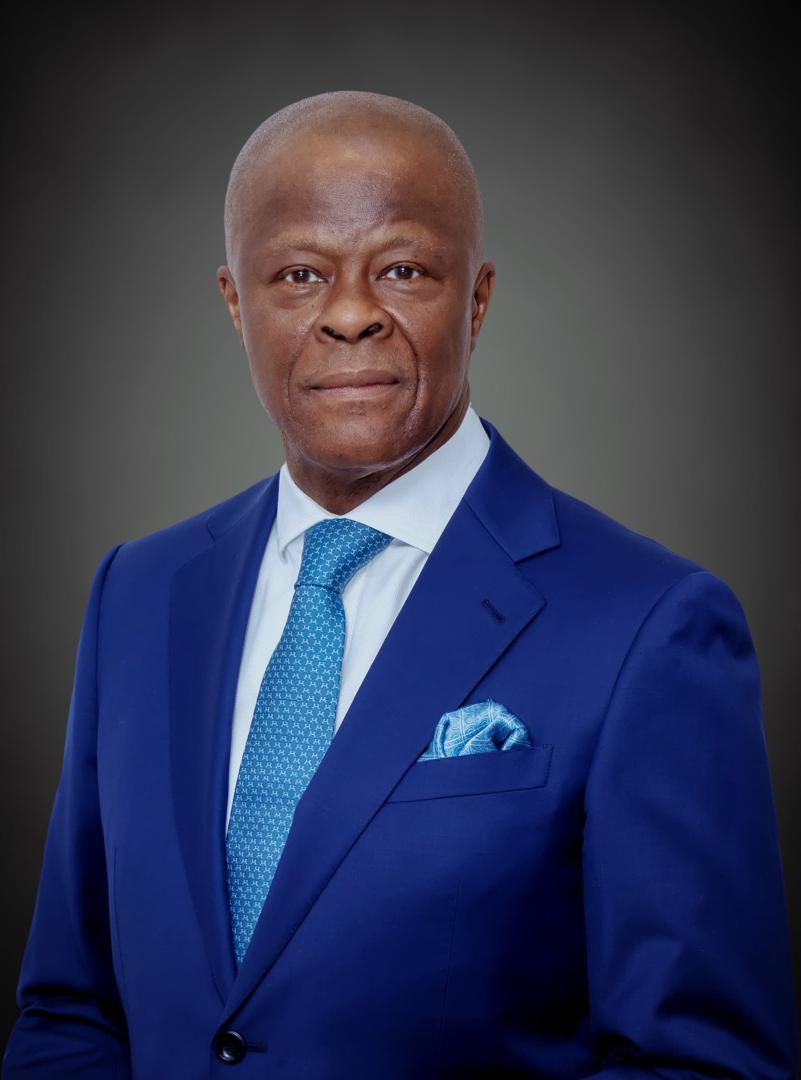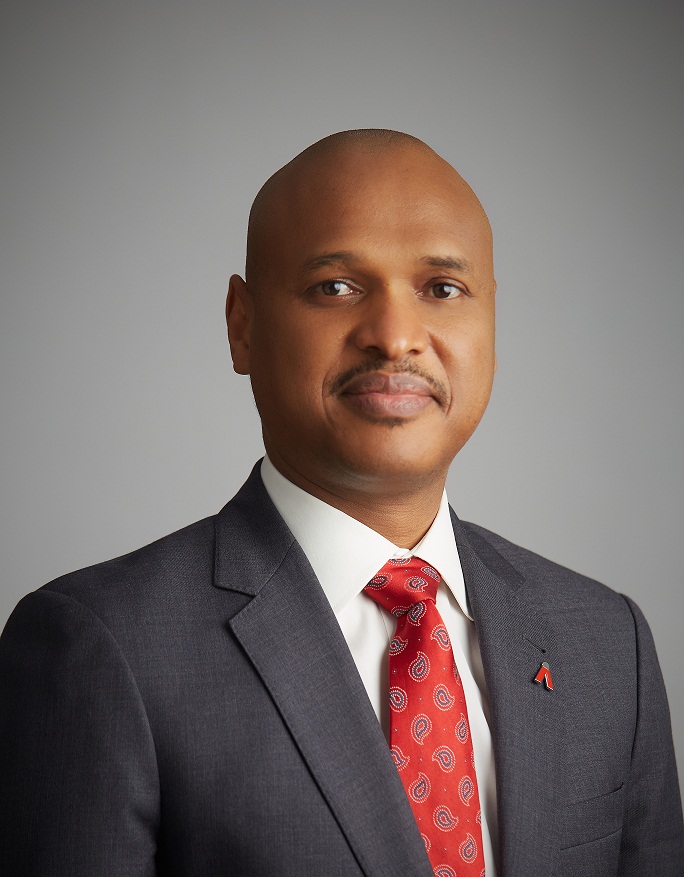Business
Nigeria’s Finance Minister For The Economy Champions Technology, Revenue Growth At Semafor World Economy Summit

Joel Ajayi
Nigeria’s Minister of Finance and Coordinating Minister for the Economy, showcased the pivotal role of digitization and fiscal reforms during his appearance at the Semafor World Economy Summit, held alongside the World Bank and IMF Spring Meetings.
Co-chaired by former U.S. Commerce Secretary, Penny Pritzker and The Carlyle Group Co-Founder, David Rubenstein, the summit brought together global economic leaders. “Technology runs throughout everything that we are doing,” HM Edun stated, highlighting the comprehensive integration of digital solutions in government operations to boost efficiency and transparency.
In a candid discussion with Yinka Adegoke of Semafor, HM Edun outlined Nigeria’s targets for fiscal improvement and economic stabilisation. He emphasised that the government is capitalising on digitisation technology to significantly enhance revenue management and collection, setting a goal for an over 60% revenue increase this year. This strategy is essential for reducing the nation’s fiscal deficit from 6.1% to 3.8% of GDP and alleviating economic pressures on Africa’s largest economy.
“To get the economy going again, we do have to bring down inflation, we have to stabilise the exchange rate, and we eventually need to get interest rates down so investors can borrow in addition to their equity,” explained Edun, delineating the key economic stabilisation measures necessary to create a more attractive investment climate.
Minister Edun also addressed the government’s strategic efforts to boost oil production, underlining that augmenting revenue is crucial for sustainable debt management. “The answer to debt is revenue,” Edun remarked, comparing Nigeria’s fiscal strategies to those of the United States and highlighting the necessity to generate adequate revenue to fulfil obligations and attract investments.
Moreover, HM Edun pointed out the significant strides made in stabilising the Naira and enhancing its performance through improved coordination between fiscal and monetary policy, increasing its appeal to both portfolio and direct foreign investors. “And if you stabilise the economy for portfolio investors to come, behind them are the longer-term, more stable, and bigger foreign direct investors who make a bigger commitment to the country. That’s why I say it’s a progression,” Edun articulated, underscoring the sequential improvement and attraction strategy for investors.
HM Edun continues his active engagement at the ongoing World Bank and IMF Spring Meetings, collaborating with international counterparts to advance Nigeria’s economic interests and developmental objectives.
Business
TAJBank Emerges Nigeria’s Biggest Non-Interest Bank

Cyril Ogar
After five years of operations in Nigeria’s rapidly evolving non-interest banking (NIB) space, TAJBank Limited has become the biggest player in the NIB subsector based on its total assets and gross earnings values.
Disclosing this during his paper presentation on the key performance indices in the non-interest banking space over the past few years at a seminar organized by Leaders Corporate Services with the theme “Roles of Non-Interest Banks In SMEs’ Financing” for SME entrepreneurs yesterday in Abuja, an investment expert, Mr. Olabode Akeredolu-Ale, maintained that based on the non-interest banks’ approved financial statements for the half year 2025, TAJBank currently remained the biggest in terms of its total assets.
The expert, a chartered stockbroker, specifically confirmed that his recent investment researches on the NIBs and their financial performances showed that TAJBank, with its total assets rising to N1.017 trillion in half year 2025 up from N953.098 billion as of December 2024, which is about N53 billion higher than the nearest NIB’s assets, now ranked top in the banking subsector.
According to him, TAJBank’s gross earnings for H1 2025 also surged to N53.752 billion from N32.86 billion as of December 2024, representing a 64% growth, and higher than the nearest NIB’s gross earnings in the period under review.
This is even as he disclosed that on the NIBs’ earnings per share during the half year, TAJBank reported N61.36 kobo earnings per share, about 92% higher than the earnings per share of the next NIB during the period.
Akeredolu-Ale, who is also a chartered accountant, clarified: “The figures I am reeling out here on the NIBs are sourced from the banking and capital market regulatory institutions’ platforms, which anyone can access to verify.
“I am part of this event because of my research interest in non-interest banking and how the players in the subsector in Nigeria can help to leverage their competencies in innovation and ethical banking to support our MSMEs.
“Today, the MSMEs cannot access DMBs’ loans due to high lending rates and other inclement macroeconomic factors. This is where I think the NIBs have become very crucial to Nigeria’s economic growth.
“Overall, my findings on the NIBs indicated that they are all trying their best with non-interest loans to support entrepreneurs, particularly the MSMEs owners. I have advised those of them at this seminar to explore the cost-friendly financing options of the NIBs to grow their businesses by opening accounts with the NIBs”, the expert added.
Another speaker at the event, Benjamin Chukwudi, also commended the NIBs for their “catalytic roles in helping SMEs to access interest-free loans and providing them the needed financial management advisory, which have been helping them in sustaining their operations in the face of rising cost of doing business in the country.”
-

 Featured6 years ago
Featured6 years agoLampard Names New Chelsea Manager
-

 Featured6 years ago
Featured6 years agoFG To Extends Lockdown In FCT, Lagos Ogun states For 7days
-

 Featured6 years ago
Featured6 years agoChildren Custody: Court Adjourns Mike Ezuruonye, Wife’s Case To April 7
-

 Featured6 years ago
Featured6 years agoNYSC Dismisses Report Of DG’s Plan To Islamize Benue Orientation Camp
-

 Featured4 years ago
Featured4 years agoTransfer Saga: How Mikel Obi Refused to compensate me After I Linked Him Worth $4m Deal In Kuwait SC – Okafor
-
Sports3 years ago
TINUBU LAMBAST DELE MOMODU
-

 News10 months ago
News10 months agoZulu to Super Eagles B team, President Tinubu is happy with you
-
Featured6 years ago
Board urges FG to establish one-stop rehabilitation centres in 6 geopolitical zones
